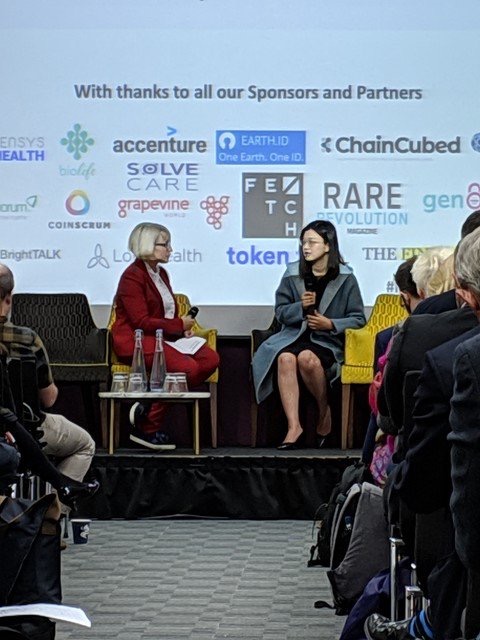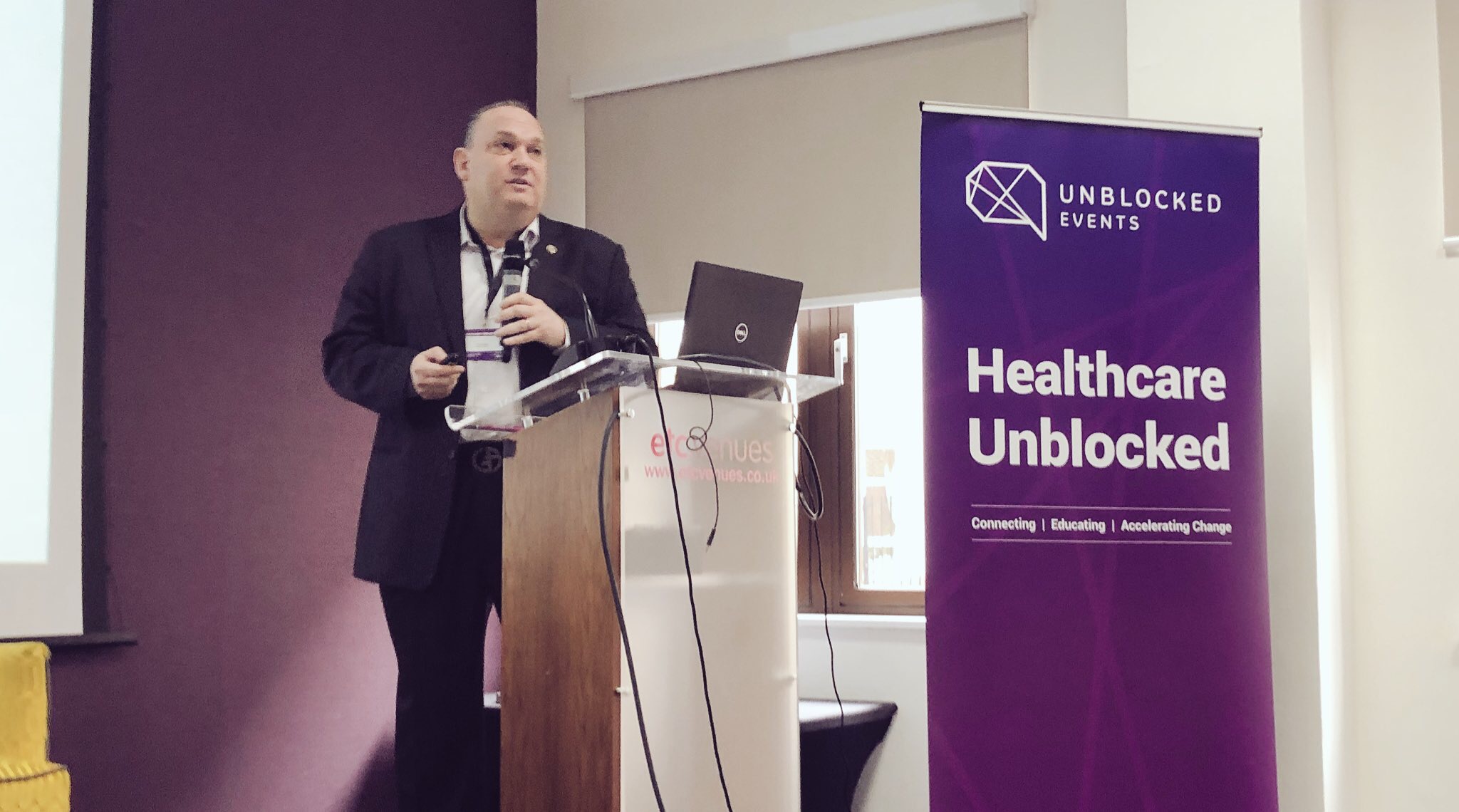By Helen Disney – CEO and Founder of Unblocked and founding board member of the British Blockchain Industry Association.
4 January 2019



Blockchain in healthcare is a growing field but at the same time it remains a small subset of the overall blockchain landscape as measured by investment. To take one metric, research by CryptoOracle shows that healthcare blockchain projects garnered only 2.5% of all the funding raised by Initial Coin Offerings (a form of crowdfunding where cryptocurrencies are sold to raise investment in blockchain startups).
Outside of the tech world, many people in healthcare organisations or the wider public are not yet aware that blockchain and distributed ledger technologies have a role to play in healthcare and cannot visualise how it could work. For the acceleration of reform and change, we need both sides to play their part, yet we largely remain at the stage of education, communication and showcasing real world examples to try to advance new thinking about how this could actually happen.
In that context, in November 2018 we brought together just under 200 people for Healthcare Unblocked 2018 – the largest healthcare blockchain event ever to take place in the UK. In the room were a mix of startup entrepreneurs building blockchain applications; large corporations and healthcare organisations including the NHS who are exploring the use of the technology; trade associations, policymakers and think tanks; patient groups; investors and others just wishing to learn more and try to get their heads around the topic.
We met at a time when cryptocurrency prices were plunging and yet at the same time people in the tech community were also celebrating how much progress has been made in the last 10 years since the publication of the Bitcoin white paper, where Satoshi Nakamoto first outlined the technology which we would come to call “blockchain”.
The 10-year anniversary of Satoshi’s white paper poses a good question. How did we go from bitcoin – a peer-to-peer electronic cash system – to applications of blockchain in healthcare? The revolution created by bitcoin is that digital money can be sent securely and directly from one person to another without the need for a third party like a bank or credit card company in the middle to prove that the transaction is valid. The blockchain is what allows us to keep track of all these payments – a bit like a massive, shared online bank statement that anyone in the world can access in real time.
Once you have that two-fold facility – to create trust in online transactions over a network and to keep track of assets digitally – it opens up a world of possibilities and new thinking which has been inspiring blockchain innovators and entrepreneurs to disrupt other industries, not just banking or finance.
And to flip it around, healthcare systems and businesses are ripe for this type of digital reform. Public healthcare systems are struggling to cope with a range of demands including ageing populations in the West, the rise in demand for more personalised treatments, archaic administrative processes (see the UK Secretary of State’s recent pledge to get rid of faxes in the NHS by 2020) and new threats like the huge rise in mental health conditions and addictions to pain medication, especially in the US. On the industry side, many insurance businesses are embedded in the same old-fashioned bureaucratic processes as the healthcare systems – and often perpetuate them in the external organisations they work with – while pharmaceutical companies are worried about dwindling pipelines for new medicines and devices and the rise in counterfeiting or substandard handling of the ones they already have on the market.
It is perhaps no surprise then that there are a wide range of applications of blockchain being proposed. For sure, not all will succeed – and some will take longer than others to work out – but the range of ideas being tested includes the following: supply chain management, managing healthcare data including securing your genome, improved third party administration of healthcare payments, medical credentialing, as well as tracking clinical trials and speeding up drug development and perhaps improving collaboration around shared IPRs between pharmaceutical companies.
Put simply, a blockchain or distributed ledger is a way of securely keeping track of all the transactions happening on a decentralised network. Participants all have access to an identical, shared history of events that cannot subsequently be changed – like a shared diary that everyone can read but no one can tamper with.
This means, for example, that we can share confidential details such as healthcare data records very securely and quickly. We can also make complex global supply chains more secure and more transparent. And we can use it to track and monitor the progress of clinical trials or gather and process reams of healthcare data coming from new sources such as whole genome sequencing data. Blockchain could help to reduce lengthy drug development times by encouraging collaboration between life sciences companies whilst protecting ownership of their intellectual property and ensuring each stakeholder receives their share of the dividends.
It could also help to speed up research by potentially allowing researchers to publish their findings securely in real time, getting around some of the problems inherent in the existing scientific peer-review process and DLT combined with other technologies like AI could help create “data lakes”, delivering new insights into rare diseases.
By creating a personalised healthcare ‘wallet’ which could be stored in a laptop or mobile phone, DLT can also empower patients to take control of their own records. The health data is anonymised and secure but the patient has full control over who accesses what, by using private keys to unlock some, or all, of their data as they see fit. Patients might be willing to sell that valuable health data to pharmaceutical companies – or donate it to scientists – to speed up discovery of new treatments, whilst preserving their anonymity.
Those who know about it are passionate about its possibilities for change. Yet blockchain in healthcare still remains a niche topic and there are only a handful of projects that are currently successful in the market place. But progress is happening rapidly and mainstream companies and public healthcare organisations like the NHS in Britain and the Federation of State Medical Boards in the USA are waking up to the exciting opportunities offered to fix problems they have struggled with for years.
Keywords: blockchain, Distributed Ledger Technology, cryptocurrency, bitcoin,
healthcare, pharmaceuticals, life sciences, data
